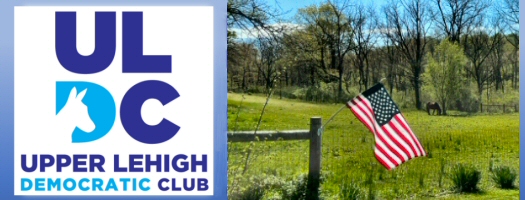Some politicians, media personalities and activists have been claiming that the law school study of Critical Race Theory (CRT) is being taught in public schools (it is not) and are now also implying that Critical Race Theory (CRT) is a part of the school districts’ Diversity, Equity and Inclusion (DEI) policies (it is not), or that DEI and CRT are the same thing (they are not). They are also like to imply that DEI is the same thing as Affirmative Action.
What Are DEI, CRT and Affirmative Action?
Diversity, Equity and Inclusion Initiatives Are Not New
DEI has its roots in the 1960s civil rights movement and has grown to include gender, sexual orientation, religion, country of origin, and other identities. The focus from the 1960s into the mid 1970s was on acceptance of integration of workplaces, schools, and communities. From the mid 1970s into the 1990s, the focus was on multiculturalism and being aware of the achievements of various racial and ethnic minorities. More recently, there has been an emphasis on inclusion and equity.
Basic Objectives of a Diversity, Equity and Inclusion (DEI) Plan
Diversity – acknowledge the range of differences among people and honor the values and talents of everyone — regardless of race, ethnicity, age, gender, sexual orientation, religion, health and ability status, historical traditions, interests, perspectives, or socioeconomic background.
Equity – provide all people with the opportunity to participate in all dimensions of school life in order to reach their full potential.
Inclusion – value people’s unique ideas and lived experiences and ensure that they feel involved, respected, connected, and have their voice heard.
Examples of Parkland’s plan for inclusion and belonging:
● Work with new students to make them feel welcome when they move into our community.
● Educate staff on trauma informed practices and support the social and emotional needs of students as well as their academic needs.
● When teaching and learning, consider multiple perspectives. Different viewpoints help students develop critical thinking, problem solving, tolerance, flexibility and empathy.
● Bring Parkland staff, students and community together around doing what is best for ALL students to be successful in academics and life experiences.
Critical Race Theory Began as an Academic Concept More Than 40 Years Ago
Critical Race Theory is taught in Law Schools as an Elective Course or Seminar. CRT scholars generally share a perspective, that racial unfairness remains widespread in American law and life, and that there should be changes in law and policy to address it. These broad concepts have gained acceptance and CRT now has ties to the work of sociologists and literary theorists who study links between political power, social organization, and language. Its ideas have informed other fields, like the humanities, the social sciences, and teacher education.
Two common ideas associated with CRT:
• Race-neutral policies and unconscious bias can produce or maintain racially unfair outcomes.
• Race has played a significant and central role in American history that has often gone unrecognized.
Specific areas examined by CRT:
• In seeking remedies for unfair outcomes, Critical Race Theorists have examined the impact of racially segregated schools, the underfunding of majority-Black and Latino school districts, the disproportionate disciplining of Black students, barriers to gifted programs and selective-admission high schools, and curricula that reinforce racist ideas.
• A more specific example is historic mortgage lending practices. In the 1930s, government officials drew lines around areas deemed poor financial risks, often explicitly determined by the racial identity of residents. Banks subsequently refused to offer mortgages to Black people in those areas. Lack of home-ownership impacts economic stability and the ability to improve family wealth, often for generations.
CRT is does not:
• Base its theories on Marxism.
• Teach that all White people are inherently racist.
• Claim that objective evaluation based on skill and ability should be discarded, or are simply tools of White supremacy.
Affirmative Action Was Introduced by President John F. Kennedy in 1961
President Kennedy ordered government contractors to “take affirmative action” to realize the national goal of “nondiscrimination.”
The intended goals of affirmative action:
• Increase opportunities for individuals and groups that historically have been underrepresented or barred from certain areas of academia, the government, and the private sector workforce.
• Promote outreach campaigns, targeted recruitment, employee and management development, and employee support programs.
• In college admission, affirmative action seeks to eliminate unlawful discrimination among applicants, remedy the results of prior discrimination, and prevent discrimination in the future.
The means of achieving Affirmative Action goals in college admissions has been challenged over the years in court and weakened by court rulings. In 1978, the Supreme Court ruled that racial quotas in admissions were unconstitutional. However in the past two decades, the Supreme Court has repeatedly reaffirmed the legality of race-conscious admissions to promote racial diversity in higher education.
A current case before the Supreme Court may result in a ruling that strikes down any consideration of race in admissions. Ironically, Clarence Thomas is expected to issue the majority opinion on the case. Thomas benefitted from affirmative action policies in the 1960s, when he attended the College of the Holy Cross in Worcester, through a program designed to make the campus more racially diverse. He requested that his race be taken into consideration on his application to Yale Law School. But later believed there was a stigma attached to this benefit and that his value of his degree was tainted by “racial preference,” casting doubt on his abilities and academic achievements.
Nine States have bans against race-conscious college admissions: Arizona, California, Florida, Idaho, Michigan, Nebraska, New Hampshire, Oklahoma and Washington. There is a growing gap between the percentage of Black, Hispanic and Native American high school graduates compared to the percentage of those students enrolled in large public universities.
Printable version of this article with sources and additional reading.




